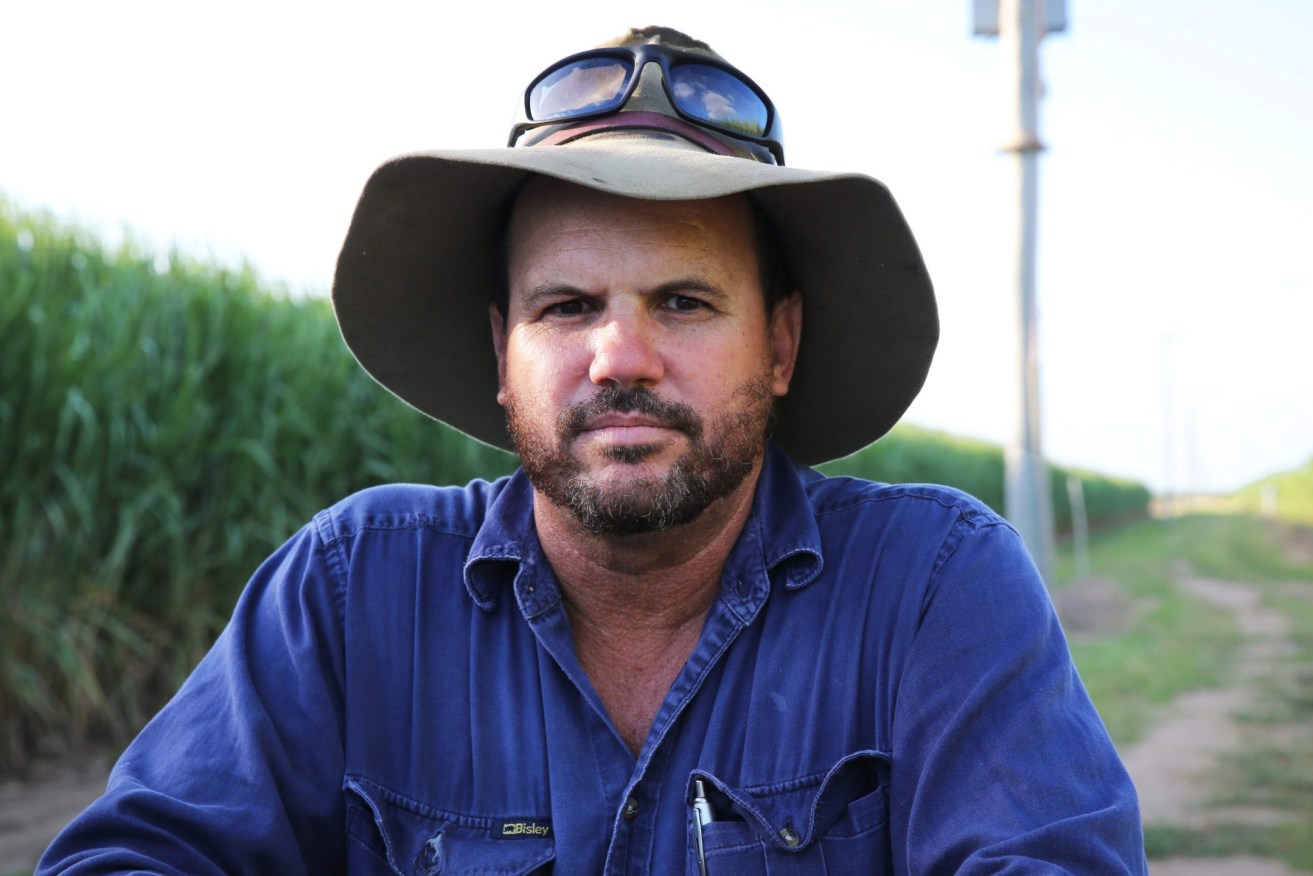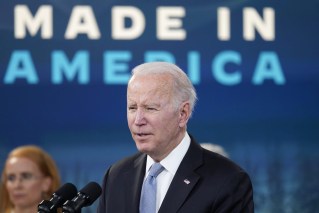Queensland sugar’s launch into jet fuel will be sweet as, says cane boss
The drive to produce 100 million litres of green aviation fuel from sugarcane will only require about eight per cent of the current Queensland crop, well within the industry’s scope to seize the new opportunity.


Canegrowers chairman Owen Menkens, pictured on his north Queensland farm in the Burdekin, is upbeat about the new jet fuel opportunity. Image: Queensland Canegrowers).
Canegrowers chairman Owen Menkens says diverting a small portion of Queensland’s harvested cane for the biofuel would be a seamless transition, although much will depend on the price being offered by those entering the new market.
Those new market players, most significantly Qantas and Airbus, have declared their intentions to produce more than 100 million litres a year of sustainable aviation fuel, or SAF, for use in domestic flights.
Operating under the Jet Zero Australia brand, the partnership has started a feasibility study into a biorefinery that is promising to create about 100 full-time jobs and employ more than 1000 workers during construction.
The two partners, who have jointly invested $2 million of an initial $6 million capital raise, say low carbon jet fuel produced on home soil will be key to achieving net zero emissions by 2050.
The Queensland Government is also contributing $760,000 to the study along with other Australian and international institutional funds.
Lanzajet, regarded as a world leader in SAF alcohol-to-jet plants, has also signed on as the technology partner for the project, committing to construction of the plant next year.
Key to the project working is a reliable supply of sugarcane, which has been the subject of research over many years as something of a miracle crop that has multiple uses in the bio-economy as a raw material for green plastics, fuel and energy in addition to its traditional use as a sweetener.
Premier Annastacia Palaszczuk said Queensland was “perfectly positioned to be a clean energy superpower”.
“Because we have both the sunshine and feedstocks including the largest sugar industry in the nation,” she said.
“That means Queensland can make the sustainable aviation fuel needed to provide fuel security for the nation and our trade partners to make air travel sustainable providing a long-term future for our tourism industry.”
Queensland currently exports about 80 per cent of the bulk sugar it produces.
Menkens told InQueensland that only eight per cent of Queensland’s current harvestable crop, as estimated by the Sugar Research and Development Corporation (SRDC), would be needed to produce the initial target of 100 million litres of fuel.
The Burdekin grower said economics would determine if more sugarcane needed to be planted to supply the new biofuels orders or whether export volumes might need adjusting.
“But growers will make that decision for themselves based on price and what’s in their best financial interests,” he said.
“There are also multiple ways of extracting fuel from sugarcane, so it’s possible to supply both markets from the one plant, we don’t have to necessarily preference one over the other.
“Our international customers don’t need to feel concerned that we won’t be fulfilling our global orders for sugar.”
Qantas is currently using green aviation fuel sourced overseas and the airline giant has committed to hit 10 per cent SAF in its fuel mix by 2030, most of which it would like to source from Australia.
An Australian SAF industry is expected to be worth $3 billion annually and could create up to 15,600 jobs nationwide by 2050.
Qantas Group chief sustainability officer Andrew Parker said the early project funding was an important first step towards building a domestic SAF industry, which will power flights around Australia.
“Qantas will be the largest single customer for Australian-made SAF to meet our emissions reduction targets, which is why we’re investing in the ideas and technology that will build a local SAF industry,” Parker said.
“This is one of several projects that we are looking to fund this year, all of which will help accelerate the decarbonisation of the aviation industry.”
Airbus executive vice president, corporate affairs and sustainability, Julie Kitcher, said that all Airbus aircraft were already capable of flying with a SAF blend of up to 50 per cent.
“Ensuring a sustainable future for our industry is a priority for Airbus, working with partners across the world and from all sectors,” Kitcher said.
“There is a growing positive momentum around SAF, and it is now time to move from commitments to concrete actions.”









